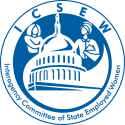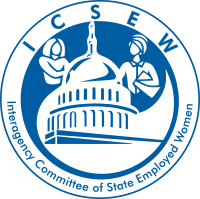Commentary: Taking Care of Yourself When Your Job Involves Taking Care of Others
Editor’s Note: This commentary originally appeared in the December 2020 Frontline Supervisor Newsletter published by the Washington State Employee Assistance Program. Cindy Guertin-Anderson, assistant director for workforce support and development shares she personal experience about how easy it can be to neglect taking care of yourself during emergencies like this pandemic.
Message from Cindy Guertin-Anderson, Asst. Director, Workforce Support and Development
Hello leaders! Over the last pandemic-burdened months, the EAP has provided you with encouragement and advice on how to take care of the employees you serve. Certainly, that’s critical. But here’s the other critical thing that you might be ignoring as outside pressures mount: Are YOU okay? When the EAP recently sent out an invitation for post-election support, a friend at another agency forwarded the email to me with the simple question: “But who supports the supporters? Hope you are hanging in there!” I answered jokingly to send an emergency supply of chocolate…but it’s a serious question, and I’m passing along that helpful question to you: Who or what is sustaining you? Are you, managers and HR professionals in your role as supporters, getting your own needs met?
At a recent state HR managers’ meeting, a participant raised the topic of compassion fatigue. And a litany of responses came into the chat—offers reaching out to chat 1:1, talk of creating a support group to process and debrief together with folks who understand what it’s like to be in their positions, desire for a space to refuel and connect together on their humanity. I’ve heard several people say that during team check-ins everyone else says they are doing just fine, “so I say I’m fine too…even though I’m not.” I’m in meetings with leaders who seem to be holding it all together perfectly well, but then I see a glimpse of their exhaustion, their despair. I see many of you—managers, leaders, human resource professionals—both going beyond the call of duty to lead in an ongoing crisis, but also beleaguered. Resilient yes, yet in some moments exhausted and with little or nothing left to give. I believe both can be true at the same time.
I received a letter from my doctor’s office reminding me that I was past due for my annual checkup. And it occurred to me that somehow amidst a pandemic that’s forcing us not to be out socializing, I had also neglected to go to the dentist (despite a minor toothache), neglected to get my eyes checked (despite the fact that I can no longer make out subtitles on my TV screen), and even neglected to keep up with my yoga practice at home (despite that year I spent in yoga teacher training). While I was busy creating wellness messages for the state workforce and trying to lead from a place of compassion, I wasn’t walking the talk. And so a few weeks later I found myself sitting in my doctor’s office for a wellness check. Her simple question, “How’s it going?” brought an unexpected cascade of tears. In other spaces I’ve been responding to that question with my standard, “Pretty well, all things considered,” but somehow in that moment I let my defenses down and I crumpled. I was not okay. I felt lonely and weary. She listened with kindness, told me what I was feeling was normal and expected, and recommended that I do something about it. What she recommended were obvious things, the things I preach but haven’t practiced. I found a counselor. I reached out to a colleague to talk. I made those neglected appointments.
My hunch is that many of you reading this are in a similar situation. You may be working overtime making sure your agency mission is achieved, while neglecting even the most basic of self-care. It’s not that you don’t know what you need to do to care for yourself; it’s just that it can feel overwhelming or exhausting to muster the energy to do it. Laura van Dernoot Lipsky in her 2018 book The Age of Overwhelm, says “Let us aspire to not allow overwhelm in the midst of suffering to leave us feeling powerless. There is always something we can do….It is never too late to start a new practice, merging the reality of insight about who you are—with an understanding of all you’ve got going on—with awareness of the choices you can make to help you sustain for the long haul. Do something. Every day.”
If you resonate with some of what I’ve shared so far, here’s a nudge for a few concrete actions you can take to combat compassion fatigue (either spend 15 minutes now, or find a 15 minute timeslot on your calendar this week and make an appointment to do the following):
- Think of a peer or colleague who might be in a similar hard spot right now, maybe someone at a different agency, and send them an email asking how they are managing these days. Invite them to meet for a virtual coffee break to chat. The person you reach out to probably needs connection just as much as you do.
- Grab a scrap of paper and jot down 3 things you did well in the past week, no matter how trivial. Read it aloud. Notice what happens to your mind and body when you acknowledge successes.
- Send a note of gratitude to someone—it can be the briefest of emails or a Skype chat—just to say “I was thinking of you and wanted to tell you that I’m glad you are in my life” or “Thanks for all you do – I feel lucky to work with you.”
And if no one has said it to you recently, I’ll end with this. Thank you for all you have done to support employees in the past 9 months. You are doing a great job. You need and deserve support too. What choice will you make today to sustain for the long haul?
PS: If you missed the October State HR Lunch and Learn on Workplace Resilience featuring Dr. Kira Mauseth from the WA DOH Behavioral Health Strike Team, give it listen. It’s well worth the hour.
Resource: Webinar: How to Build Resilience When Your Job Involves Helping Others in Crisis The EAP has an upcoming webinar from 2 p.m. to 3:30 p.m. Monday Dec. 7. You can register here or visit the EAP website for on-demand recordings of this webinar topic.


